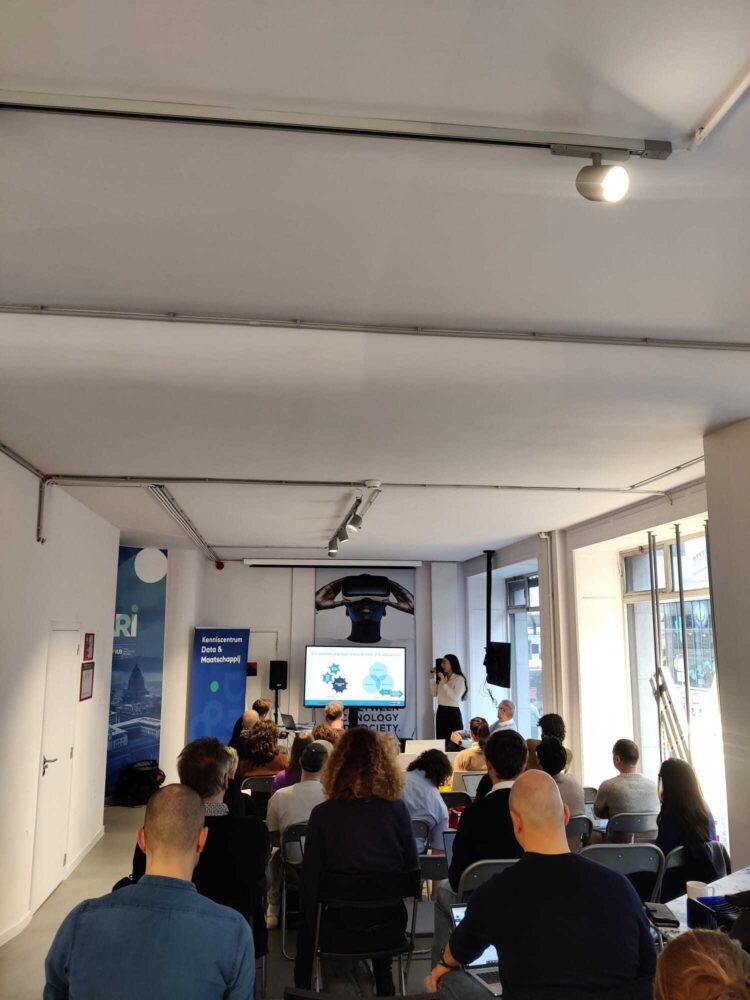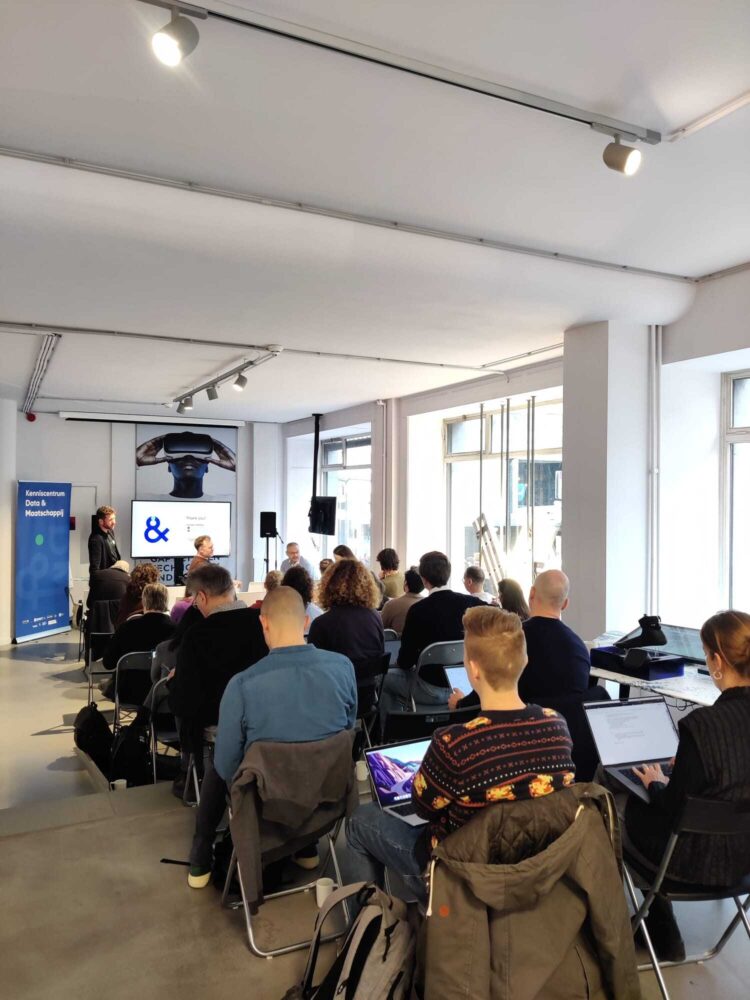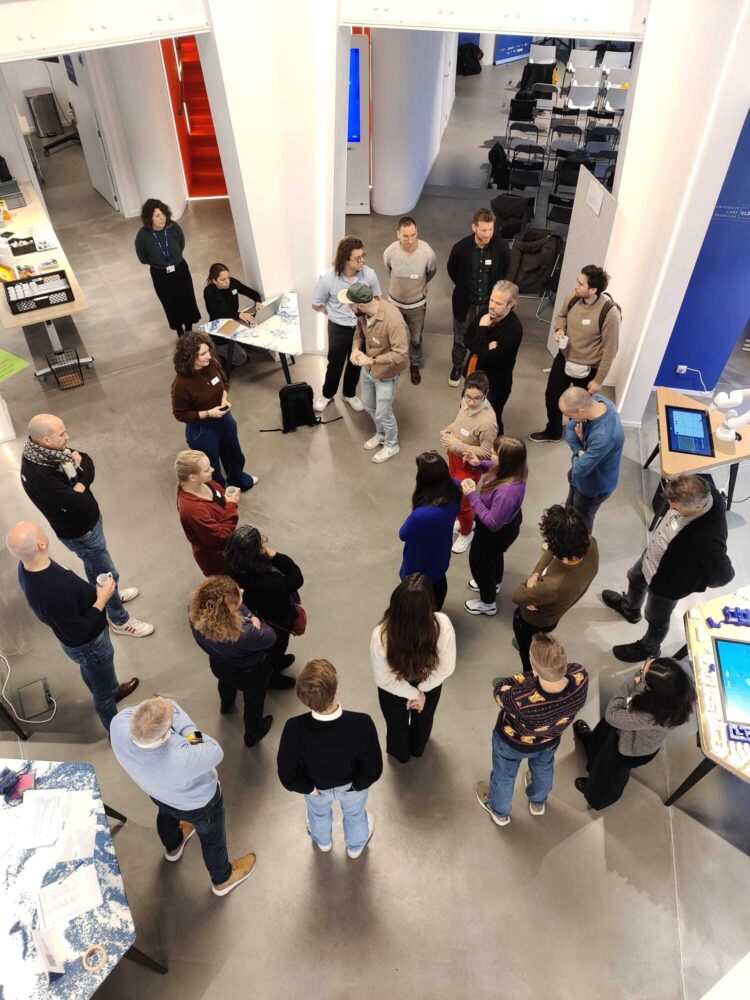Best practices for sustainable GenAI [EN]
20.12.2024
Do individuals have a responsibility to reduce the ecological impact of generative AI tools? Should AI systems have a ‘Nutri-Score’ for sustainability? On 10 December 2024, the ‘AI and ethics in practice’ learning community of the Knowledge Centre Data & Society came together at FARI - AI for the Common Good Institute to discuss best practices for sustainable generative AI (GenAI). This meet-up was co-organised by the SustAIn.Brussels initiative, which is coordinated by Sirris, Agoria, BeCentral, VUB and ULB.
In this article, we summarise the main findings of the presentations and discussion with our community members. The presenters were Erik Mannens (professor of sustainable AI at the University of Antwerp, and professor of semantic intelligence at Ghent University), Alexandra Papageorgiou (researcher at CiTiP, KU Leuven University) and Rob Heyman (coordinator of the Knowledge Centre Data & Society).
Did you know…
… that one image generated by Dall·E 2 consumes the same amount of energy needed to charge one iPhone?
Our 3 main insights from the presentations
- Erik Mannens stressed that we should have a sustainability score for the planet that considers whether a particular AI system is efficient, energy-aware, modular, circular and open. We also need a sustainability score for humans that focuses on the following characteristics of AI systems: robustness, auditability, predictability, transparency and responsibility.
- Alexandra Papageorgiou made a distinction between environmental ethics (i.e. our relationship with the environment) and sustainability ethics (i.e. our relationship with others and the environment, so environmental ethics is part of sustainability ethics). Sustainability ethics takes into account social and economic aspects, such as economic viability and social equity. We must ensure that the development and deployment of GenAI promotes collective well-being and that its benefits do not come at the cost of ecological harm.
- Rob Heyman presented the sustainability ikigai (purpose) as a way to operationalise sustainability in an organisation. The ikigai method is about trying to formulate an answer to the following three questions: ‘What do you want to change in the world?’ (i.e. intrinsic motivation), ‘What can you change in the world?’ (i.e. within reach) and ‘What do you need to change in the world?’ (i.e. extrinsic motivation).
Our insights and thoughts from the discussion afterwards
- If you’re considering using a (Gen)AI system in your organisation, ask your vendor what the carbon footprint is of that system and if they are following the main ecological guidelines.
- There are no standards yet on AI sustainability, but this is the direction we are heading in. The AI act does include the development of standards to improve the performance of AI systems, with a particular focus on energy efficiency.
- We all have a role to play in reducing the impact of GenAI. Individual users should be made more aware of the energy consumption of GenAI and be encouraged to reduce the unnecessary use of GenAI. Developers need to choose the most sustainable model available. There should also be more legislation to restrict the energy consumption of GenAI tools and the use of GenAI tools in certain sectors (e.g. the restriction of AI-generated images in news articles).
- A culture shift is needed in organisations to encourage employees to reduce the ecological impact of their GenAI use. Including sustainability aspects in a code of conduct is a good start, but more is needed to create a truly sustainable and ethical culture.
- Governments must set an example and aim for a climate-neutral use of GenAI in their services.
- Companies need more guidance on how to operationalise the sustainable development, deployment and use of GenAI tools. Additionally, their efforts should be monitored and, if necessary, the company should be fined for not doing enough.
The next ‘AI and ethics in practice’ meet-up is on Tuesday 11 March 2025. You can already register here. Hope to see you then!



